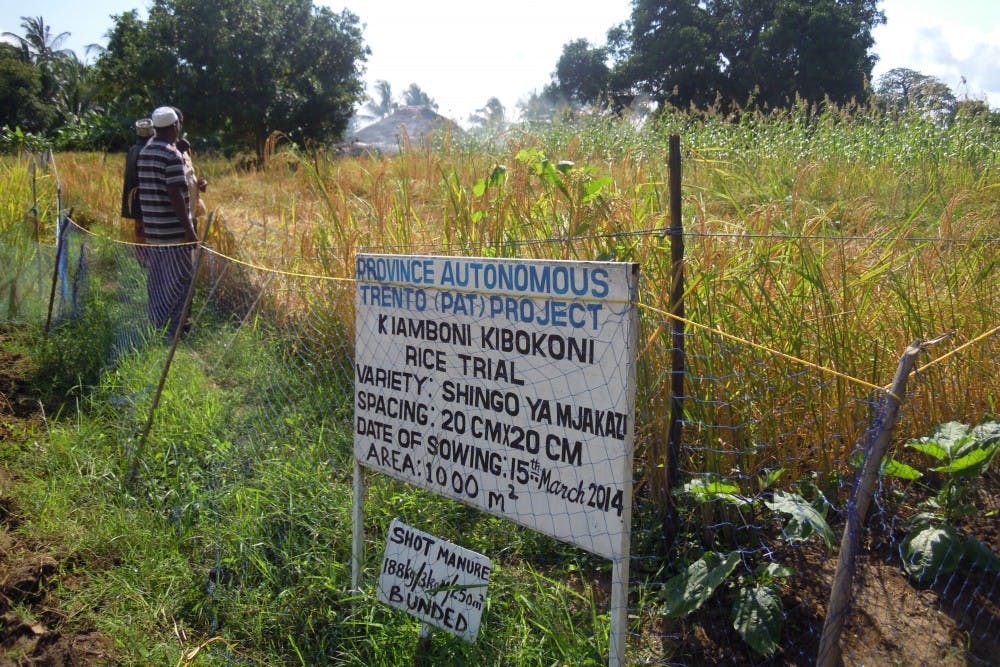Engineering Projects in Community Service (EPICS) gives students a platform to design a product that can benefit the world. EPICS offers two courses that allow students to dive deeper into the world of engineering and sustainability.
ASU’s EPICS group is looking to work with Italian nongovernmental organization Ivo de Carneri to implement a sustainable aquaponics system on Pemba Island, a remote island off the coast of Tanzania.
Interdisciplinary studies senior Chris Vance took this platform with a full head of steam after interning in Italy with the Ivo de Carneri Foundation in the summer of 2015.
Ivo de Carneri fundraiser manager Michelangelo Carozzi said Ivo De Carneri’s main goal is to carry out late professor Ivo de Carneri’s goal of creating a better living situation for the people of Pemba Island.
“I saw Ivo de Carneri’s needs-based assessment of Pemba Island and I knew something could be done,” Vance said.
When he came back to ASU after his summer internship, Vance said he relayed this information and was informed that he should attend FSE 104, the feasibility and planning class of EPICS.
“I got placed into the class and formed the business unit now known as Aqualibria," Vance said. "Myself and seven others began filtering ideas that would coordinate with Ivo de Carneri’s needs-based assessment. We collectively figured out that implementing a water filtration system along with an aquaponics system would greatly benefit the people of Pemba Island."
Aqualibria and Ivo de Carneri have created a mutually beneficial relationship for the people of Pemba Island.
“We wanted to create a collaboration on a specific project for a specific goal, in this case EPICS knows the problem and we are starting to know the solution of this problem,” Carozzi said.
Vance explained that the solution to this problem is aquaponics, which is the process of combining hydroponics along with aquaculture in order to grow food.
Vance said aquaponics are “basically turning the waste of fish into a fertilizer to plant crops."
The work of Aqualibria has not gone unnoticed as it is now moving past the feasibility and planning course and heading into the second EPICS course, FSE 494: EPICS in Action.
Director of EPICS, Scott Shrake, has taken notice of Aqualibria’s drive.
“Aqualibria has the potential to be a great example of what EPICS is all about,” Shrake wrote in an email. He added, “While Aqualibria has their challenges, there is no shortage of passion.”
Vance said Aqualibria is now starting FSE 494 with high expectations.
“Best case scenario, we get a working prototype and we introduce it to the people of Pemba Island by the end of the spring semester,” Vance said.
Related Links:
Engineering classes help students reach out
Engineering students’ water filtration system to help school in Bangladesh
Reach the reporter at dcaltabi@asu.edu or follow @davidcaltabiano on Twitter.
Like The State Press on Facebook and follow @statepress on Twitter.




